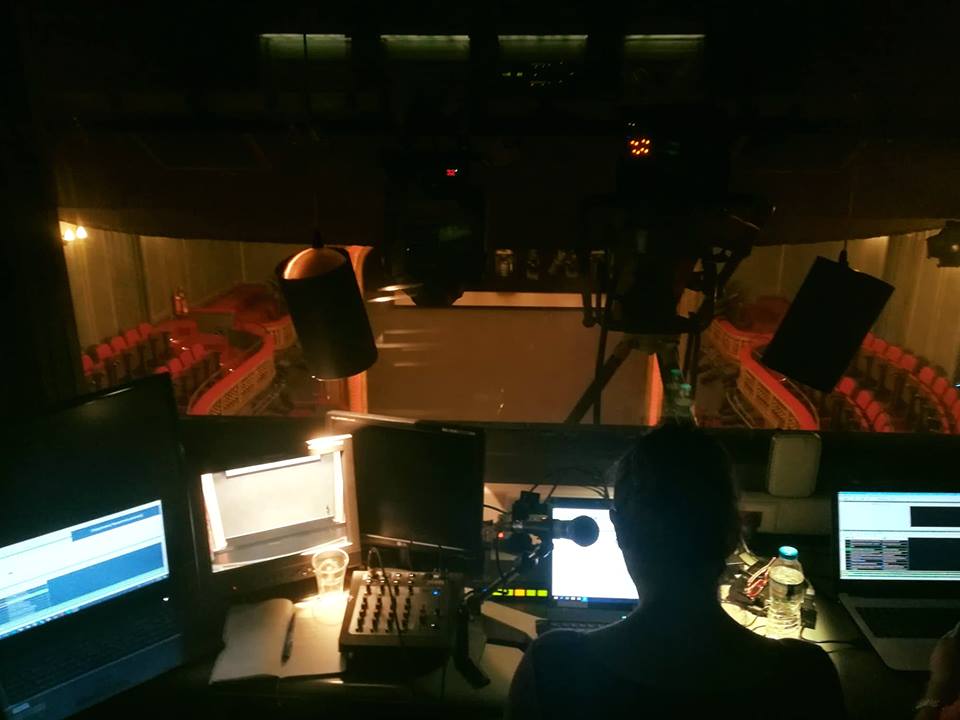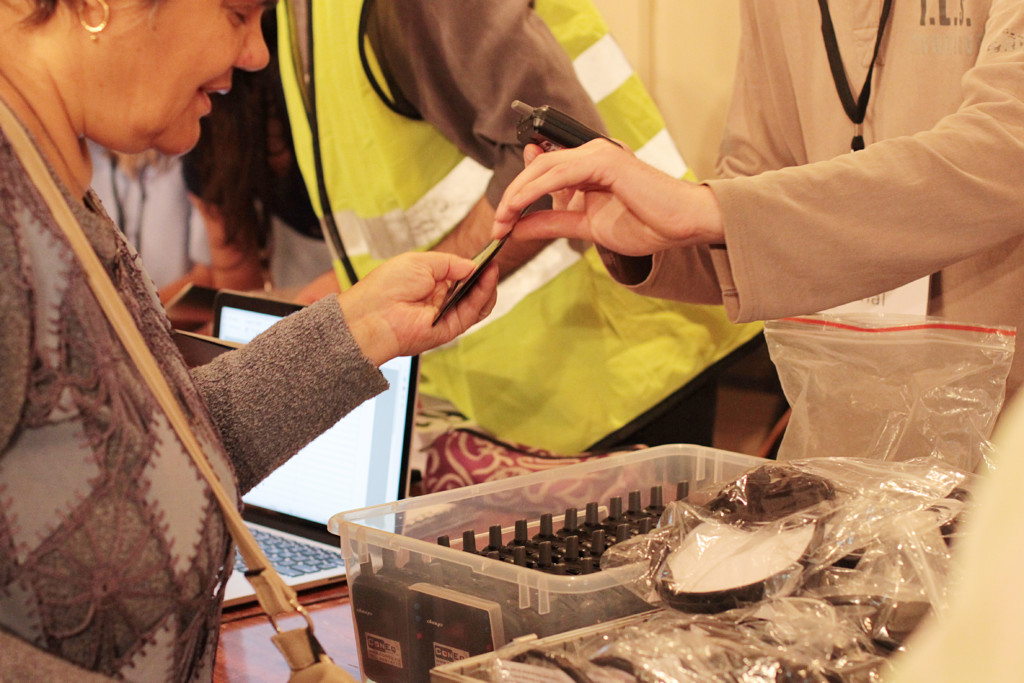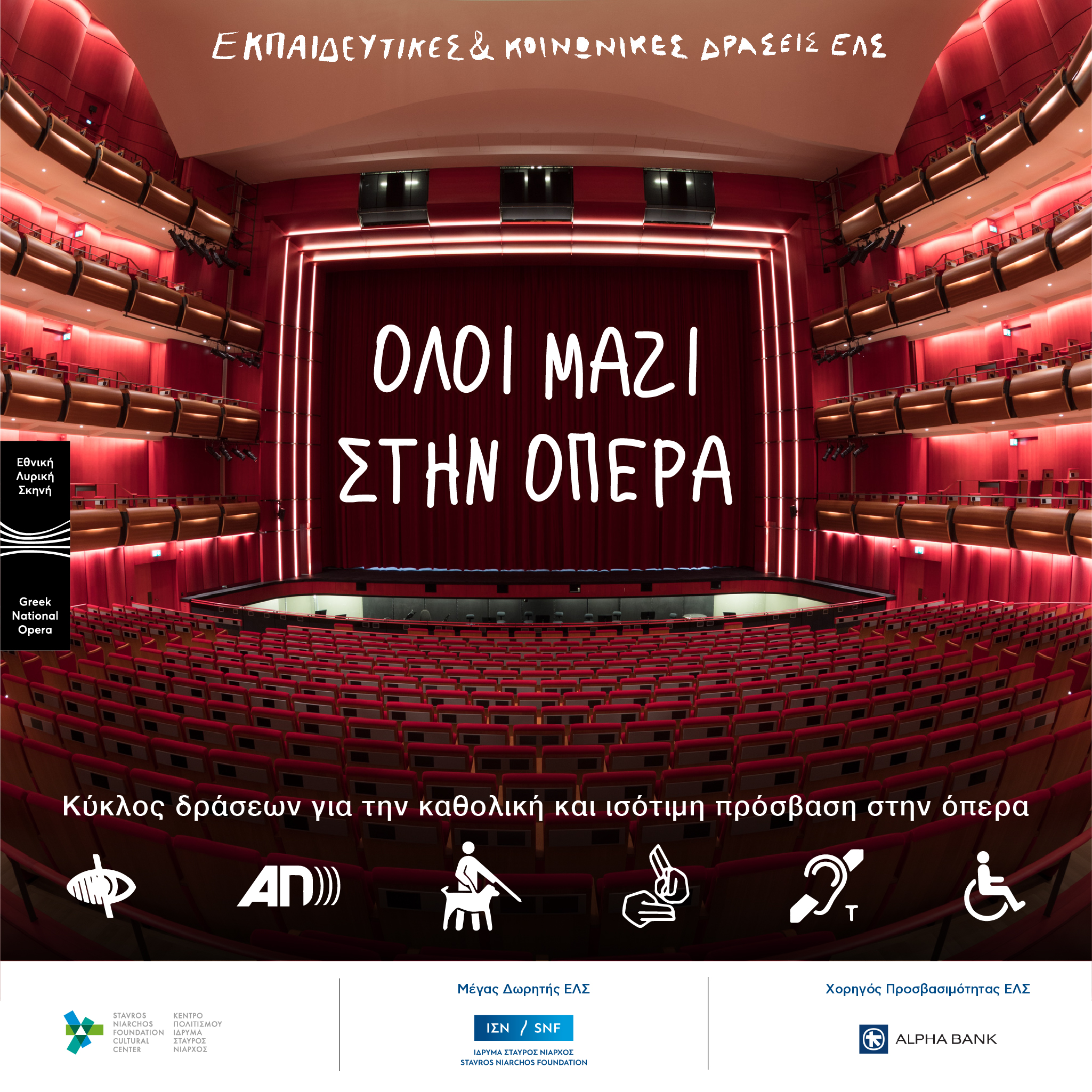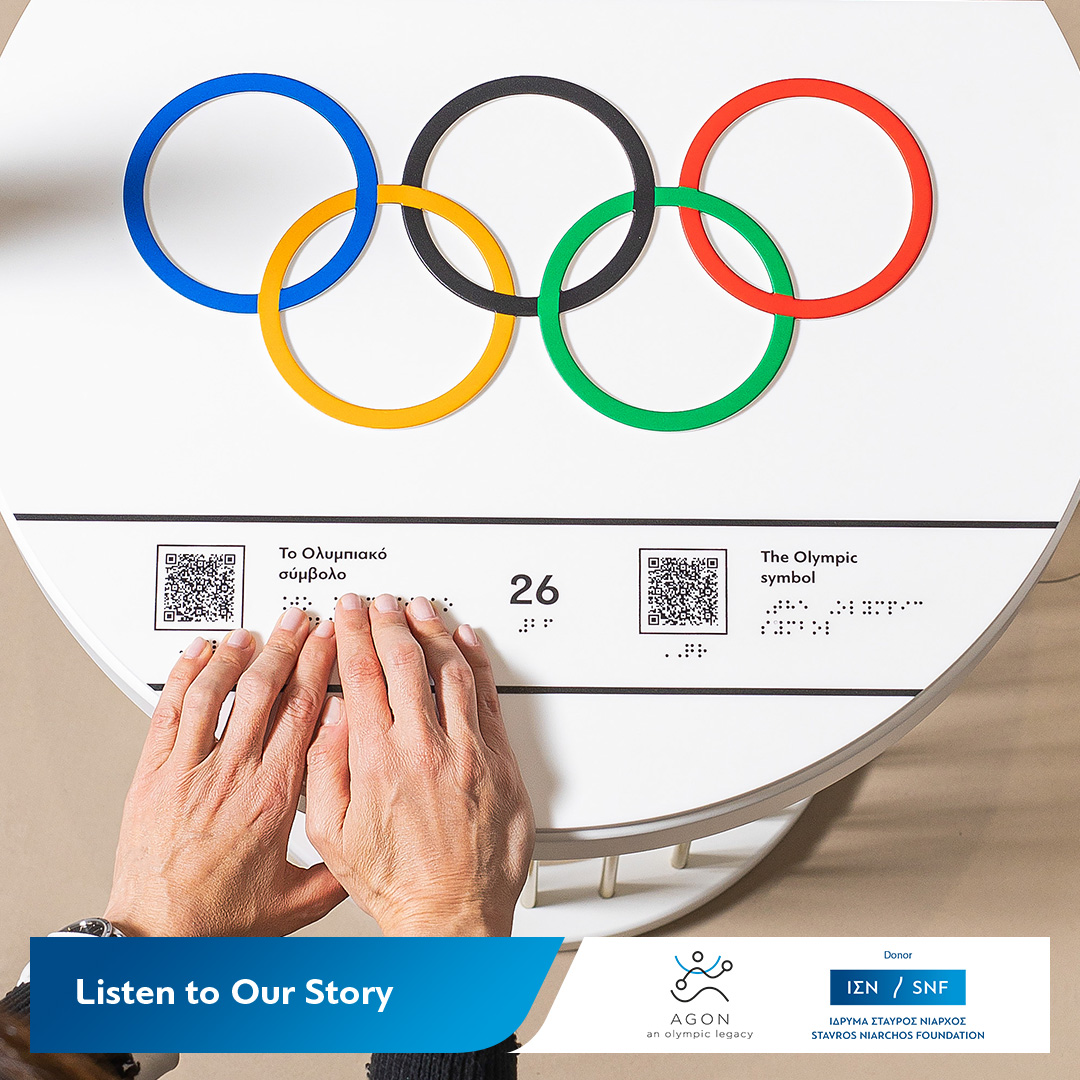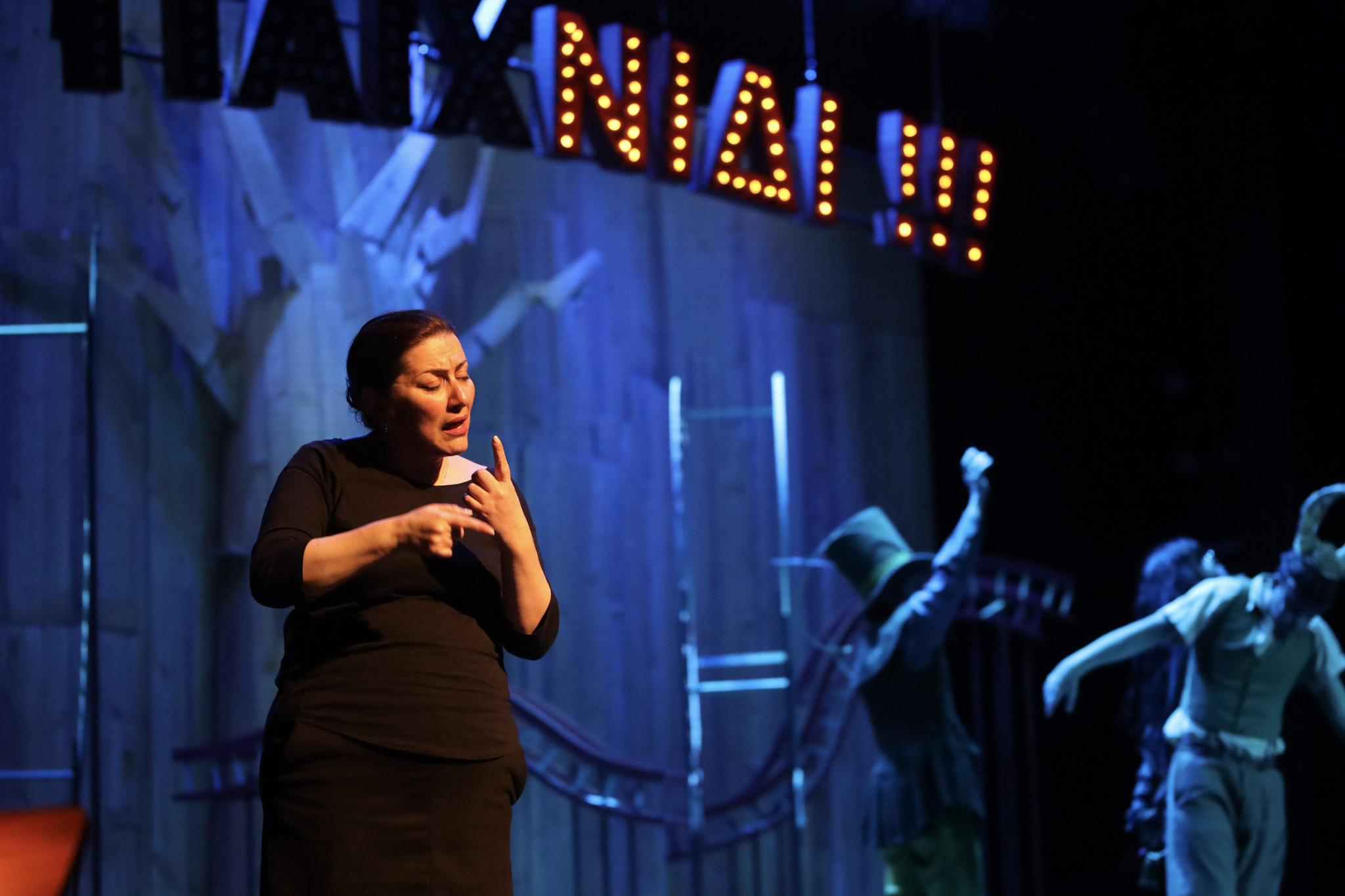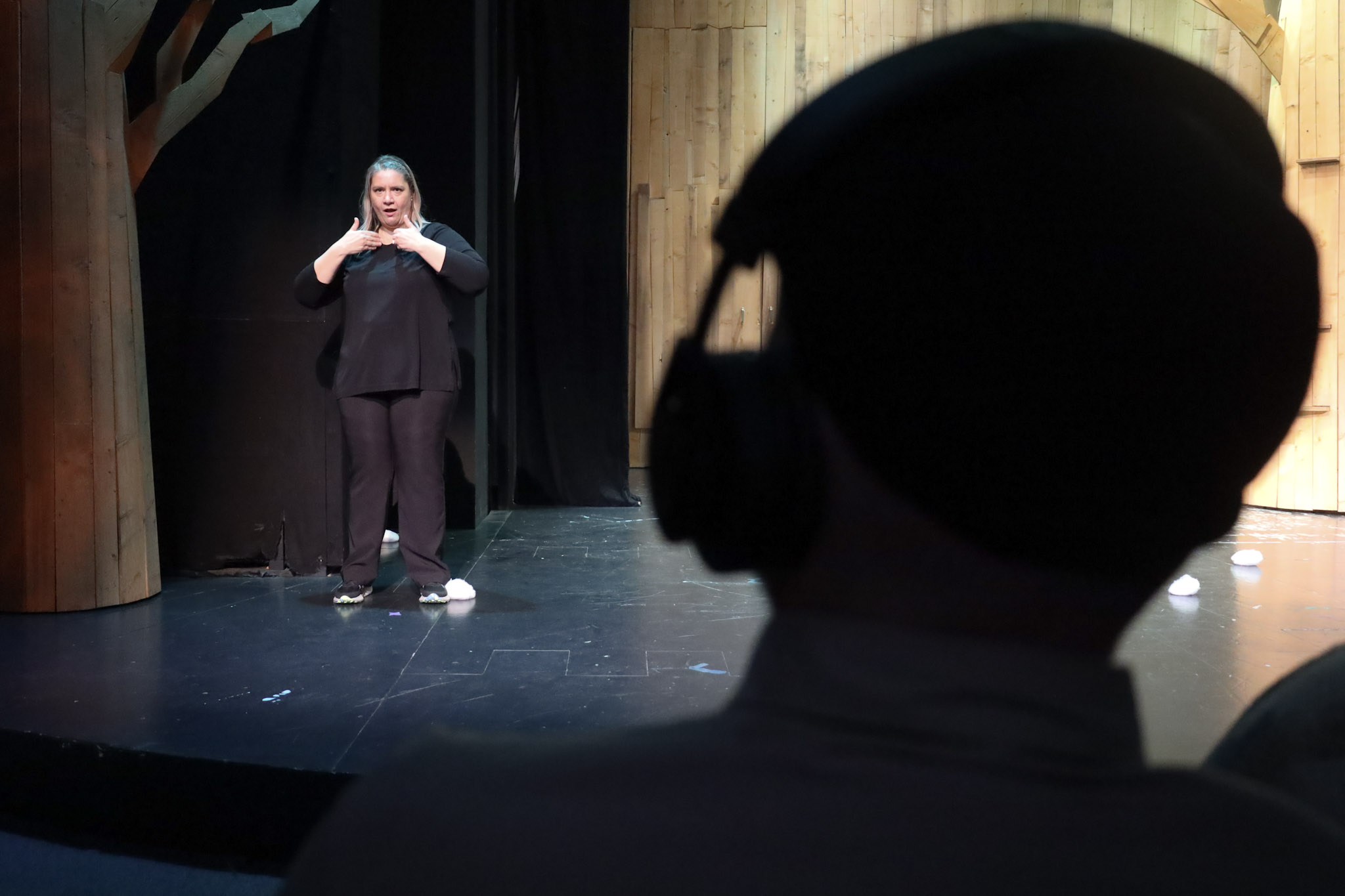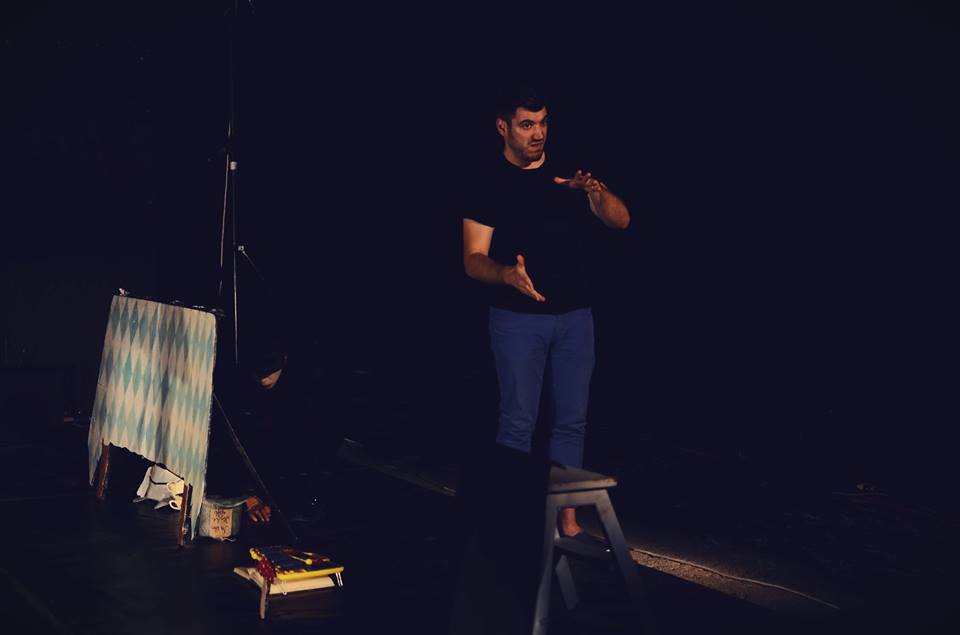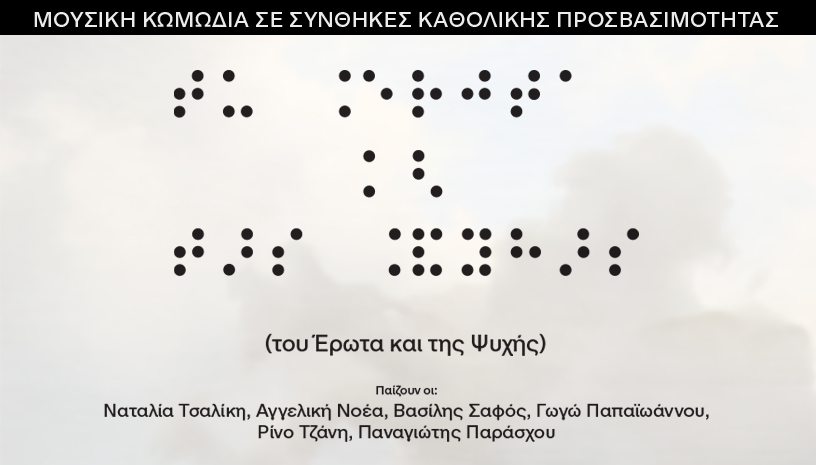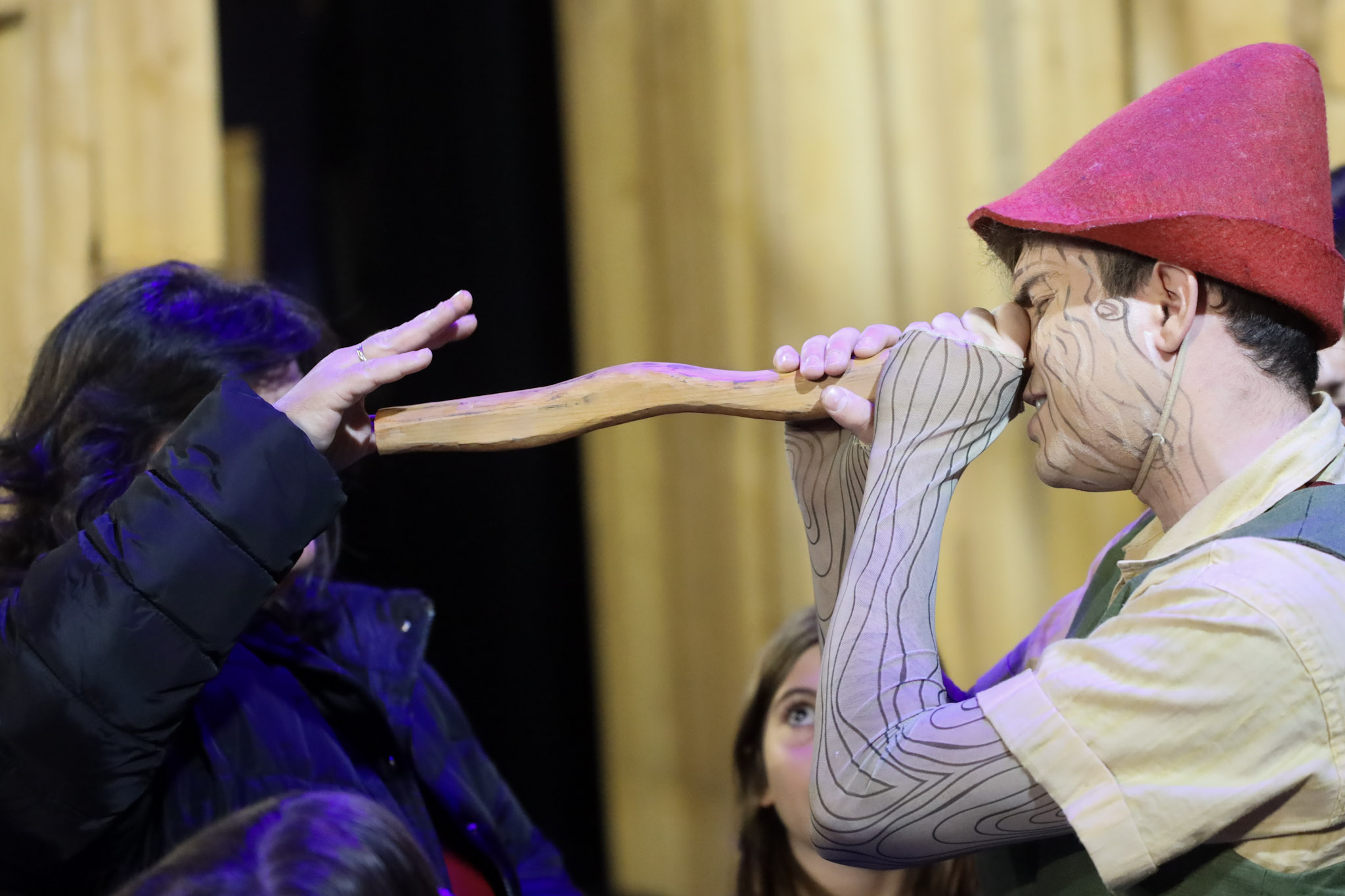Accessibility Services
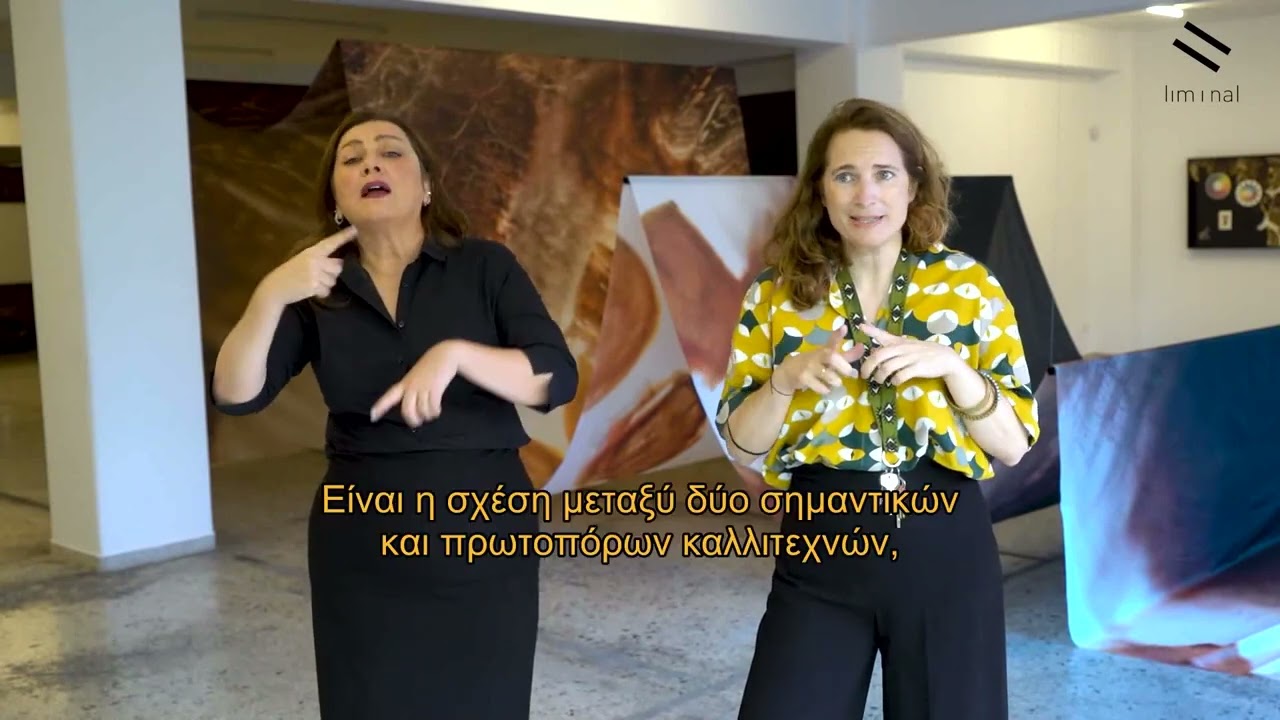
Access to culture is an inalienable right for all. Learn how you can broaden your audience and offer an artistic experience that appeals to all members by incorporating Accessibility Services.
Through its many years of experience, its wide network of partners and the use of appropriate technological means, liminal creates Accessibility Services for artistic works, audiovisual material, cultural and social events, tailored to your needs.
We provide Audio Description and Touch Tours for people with visual disabilities, Subtitling for Deaf and Hard of Hearing people and Interpretation in Greek Sign Language in live or digital content: in performances, museums, exhibitions, films, videos, conferences, lectures, workshops.
In addition, we design and provide complementary services that complete the experience of the public during their interaction with the respective art project. Some of these include: designing accessible promotional materials, accessible print and digital programs (in Braille, large print or audio files), human resources training, etc.
Contact us to help you explore ways in which your activities can be made more accessible.
Audio Description
A form of oral narration used to provide information surrounding key visual elements of a work to people with visual disabilities.
To whom it is addressed?
It is addressed to persons with low vision, partially sighted, legally or totally blind.
Where can it be applied?
Audio description can be implemented in cultural and social events, or as aiding material on every piece of art with a visual content. It can be provided in theater or dance performances, museum or gallery expositions, film productions, television shows, videos, conferences, festivals, websites, etc.
Who is providing this service?
Audio Description professionals specialized in the field of Audiovisual Translation create and time the Audio Description script. The Audio Description is either recorded by professional speakers in a recording studio or broadcast live at the event venue using the appropriate equipment. The final stage of checking is carried out by liminal’s Quality Control Team consisting of blind members of our community to ensure the quality of our services.
Touch Tours
The guided tour in a cultural space (theatre stage, museum, gallery, etc.) with the possibility to interact with the objects or exhibits through touch.
To whom it is addressed?
It is addressed to persons with low vision, partially sighted, legally or totally blind.
Where can it be applied?
At live cultural events such as a performance or a visit to an art space.
Touch Tours are usually held before an Audio-Described performance to provide context about the show and to allow blind and partially sighted members of the audience to familiarise themselves with the design of the space, props, costumes and main characters of a performance ahead of the show itself. For blind and partially sighted people, joining a touch tour prior to an audio described performance can create a much more meaningful and enriching artistic experience.
A tour of a museum or a gallery can also be made accessible in this way, by creating replica museum exhibits, or tactile copies of the artworks. Thus, along with information about the exhibits themselves that the visitor gets from the guided tour, he or she has the opportunity to explore them tactilely.
Who is providing this service?
In order to coordinate a Touch Tour, the cooperation of professionals of Acoustic Description for people with visual disabilities is required together with professionals of the respective collaborating venue (museum, theatre company, etc.) such as stage designers, directors, tour guides, art experts, etc. The final stage of the check is carried out by liminal’s Quality Control Team composed of people with visual disabilities to ensure the quality of our services.
Subtitling for the Deaf and Hard of Hearing (SDH)
The projection in the form of subtitles of the audio content of a work, such as spoken word, sounds and music.
To whom it is addressed?
It is addressed to people with hearing loss, deaf or hard of hearing. In the case of a live event, it may also be of use for the attending audience who are far away from the live action. SDH can be also useful for people who do not know the spoken language well or even social media users.
Where can it be applied?
SDH can be provided as an accessibility service in cultural and social events, works of art with audio content and recorded digital material such as theater performances, films, television shows, videos, conferences, seminars, festivals, social media, websites, etc.
Who is providing this service?
It is conducted by professional subtitlers specialised in subtitling for the Deaf and Hard of Hearing. The final stage of checking is done by liminal’s Quality Control Team consisting of people with hearing disabilities to ensure the quality of our services.
Greek Sign Language Interpretation (GSL)
Simultaneous interpretation in Greek Sign Language of the spoken word and the sound ambience of a work of art or a cultural event.
To whom it is addressed?
It is addressed to persons with hearing loss, deaf and hard of hearing and individuals who communicate using the G.S.L.
Where can it be applied?
Simultaneous interpretation in GSL is provided as an Accessibility Service for cultural and social events, as well as for all recorded digital material, such as performances, exhibitions, conferences, festivals, films, TV programmes, advertisements, social media, etc.
Who is providing this service?
By professional Sign Language interpreters, members of the Association of Greek Sign Language Interpreters and by Deaf Interpreters.
Universal Accessibility
It is understandable that there cannot be universal accessibility at the same time to all members of the public, as in human diversity very different needs are encountered, often conflicting with each other. However, in the context of a universal design, we aim to create the conditions that will allow all people to have easy access to a space, product or service and will enable them to enjoy it autonomously and unhindered.
To whom it is addressed?
It is addressed to all members of the public regardless of age, gender, disability, etc.
Where can it be applied?
Any cultural goods presented live or in digital form can have Accessibility Services built into its content to make it accessible to people with sensory or neurodevelopmental disabilities.
Universal accessibility is best achieved by integrating it into the design of the production from the outset, without special adaptations or additions. Depending on the project, we can suggest ideas and solutions to make it accessible and easy to follow for all members of the audience from the start.
Who is providing this service?
The implementation of Universal Accessibility Services requires the cooperation of an extended network of partners consisting of GSL Interpreters and Subtitlers for Deaf and Hard of Hearing people, Audio Describers, professional Speakers, Accessibility Advisors, Quality Control Teams, etc. in order to ensure an optimal experience for the audience.
Contact us to design together the accessibility plan that best suits your needs.
Portfolio
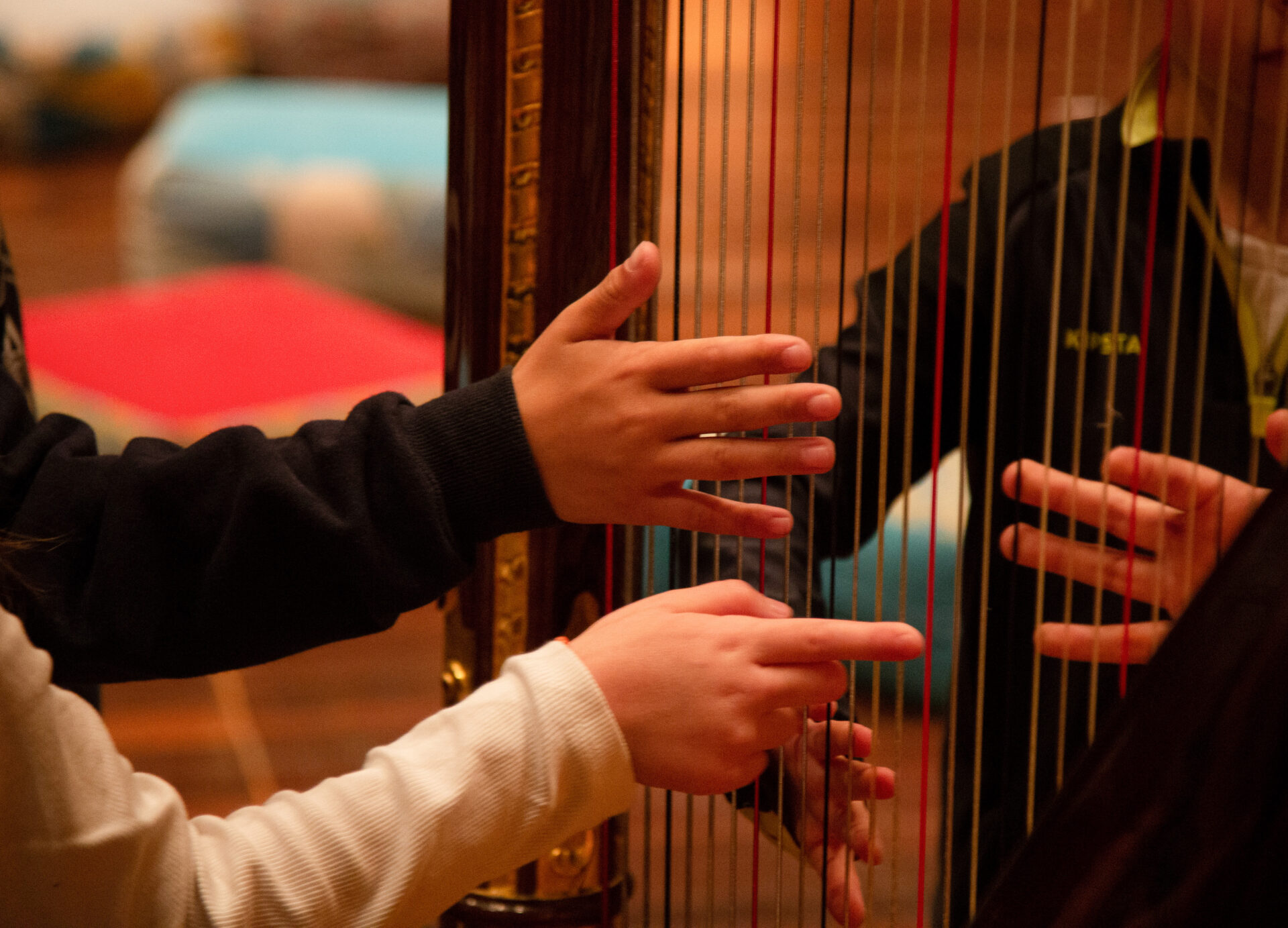
The educational program returns at Megaron
The educational program of the Megaron The Athens Concert Hall “Discovering Musical Instruments: The Instruments of the Symphonic Orchestra” returns with its second cycle of this season! Read More
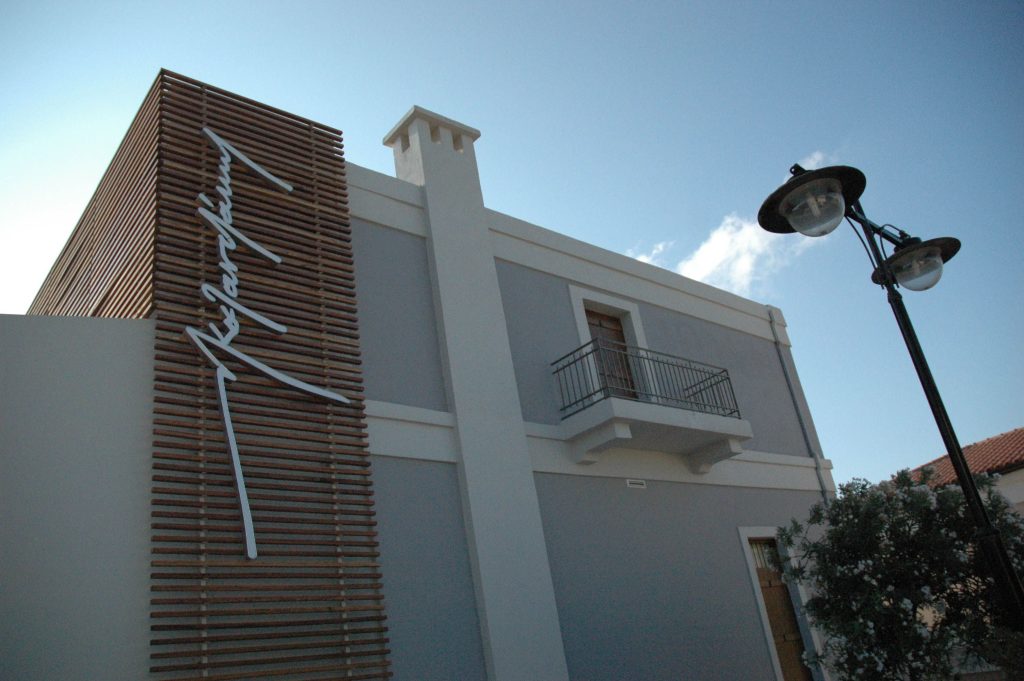
Accessibility at the Nikos Kazantzakis Museum
The Nikos Kazantzakis Museum has completed the project “Enhancing Universal Accessibility at the Nikos Kazantzakis Museum”, funded by the Hellenic Ministry of Culture. liminal undertook the accessibility adaptation of selected exhibits of the Permanent Exhibition for people with visual impairments, as well as for D/deaf and hard of hearing people. Read More
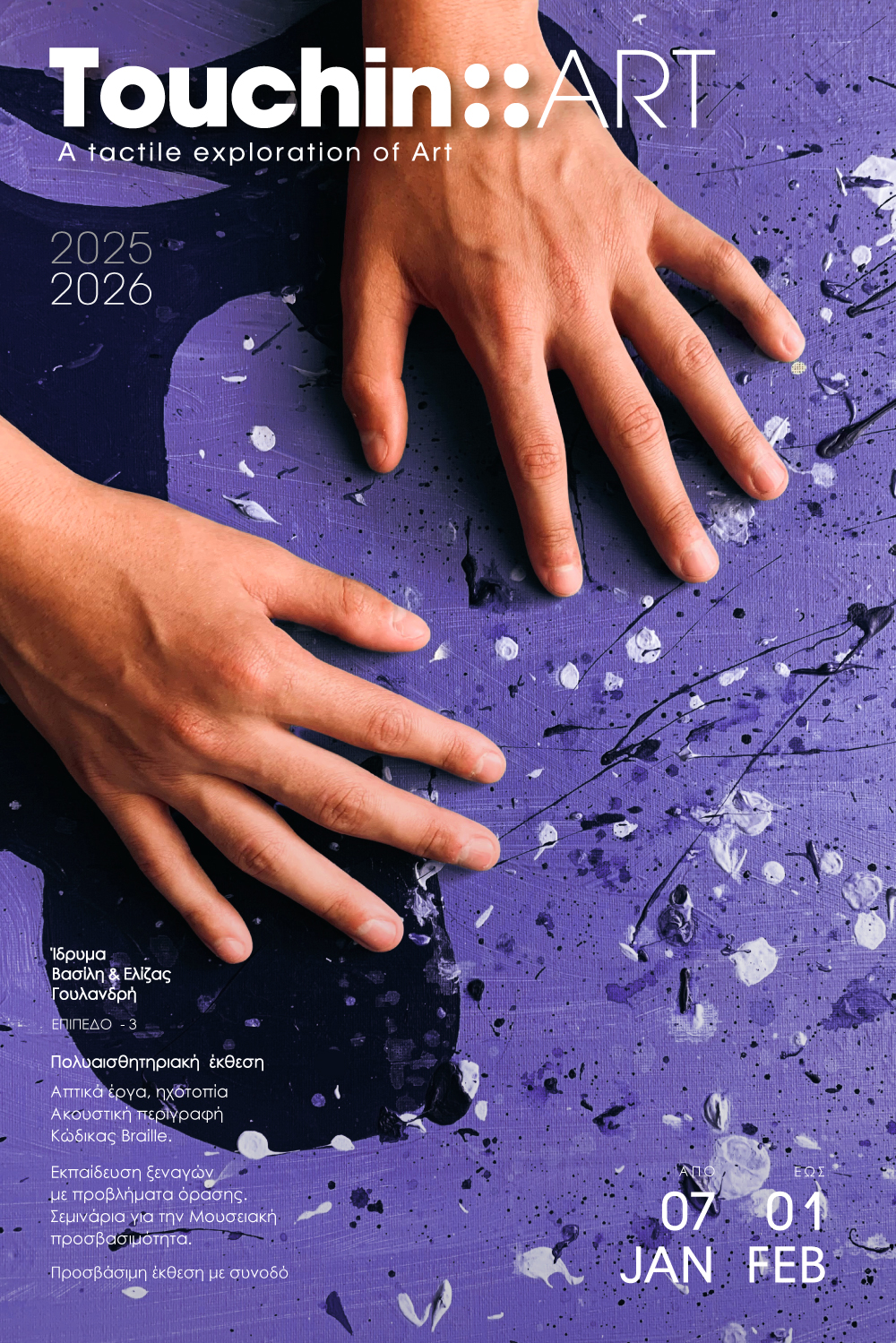
A tactile exploration of Art
We are delighted to invite you to the opening of the tactile art exhibition “A tactile exploration of Art” on Wednesday, January 7, 19:00–21:00, at the Museum of the Basil & Elise Goulandris Foundation in Pangrati. Read More
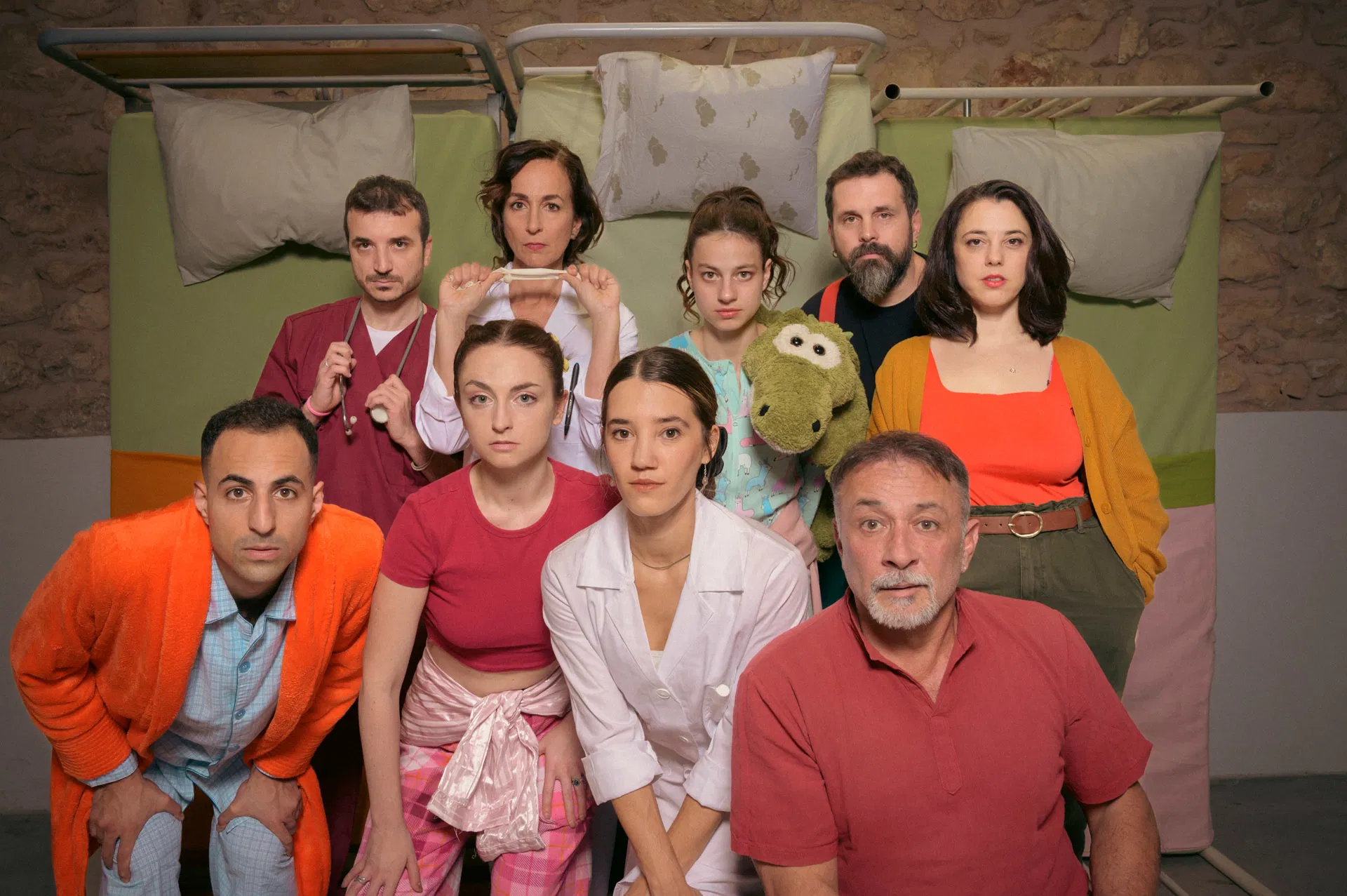
Urgent Christmas at SNFCC Lighthouse
Christmas Stories come to life once again this year at the Lighthouse of the Stavros Niarchos Foundation Cultural Centre (SNFCC)! liminal, faithful to its annual appointment, will be there on 27 and 28 December 2025, providing the Audio Description and Touch Tour for the performance “Urgent Christmas”. Read More
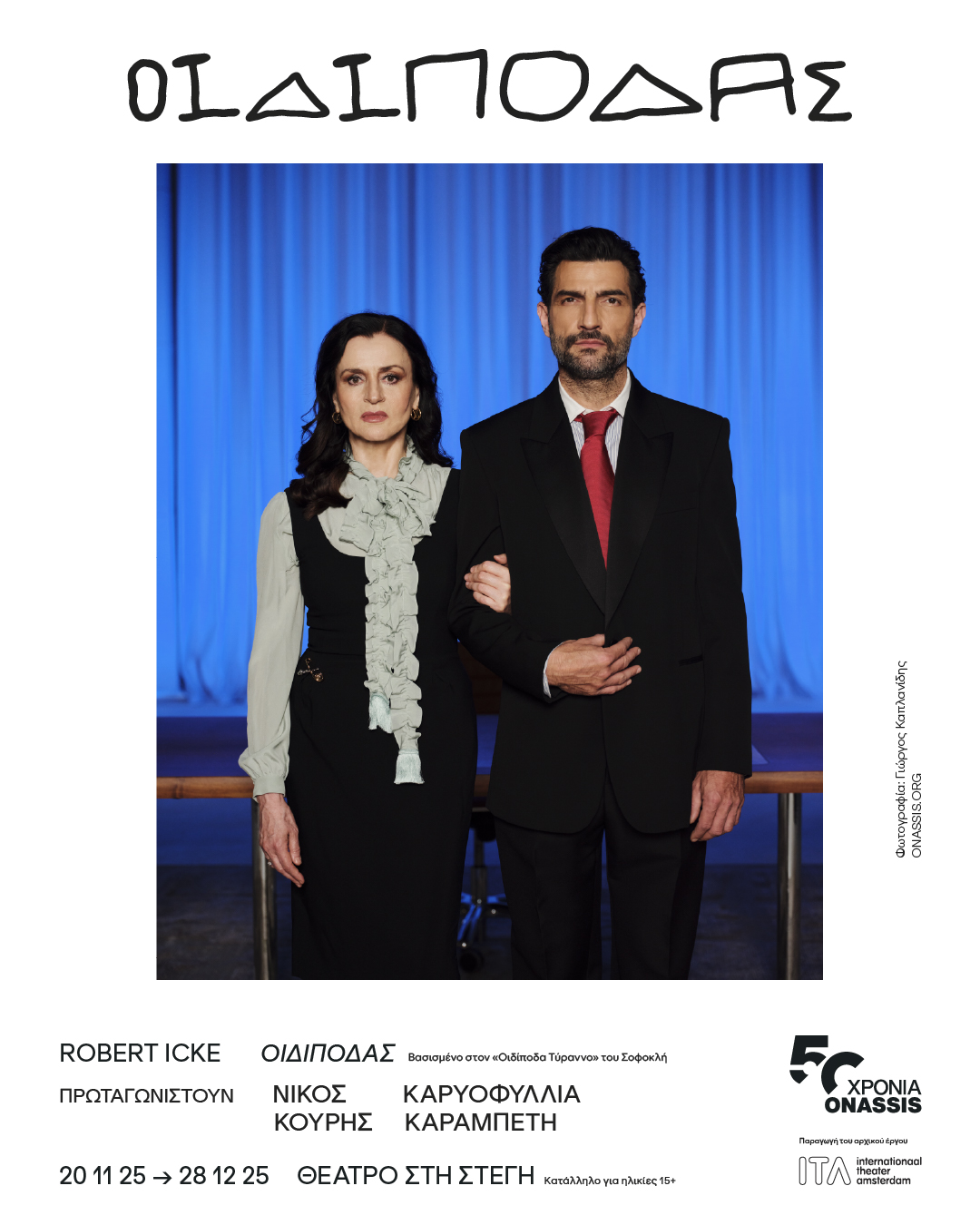
Oedipus at Onassis Stegi
Oedipus at Onassis Stegi becomes accessible by liminal at December 18,19 and 20, 2025. Read More
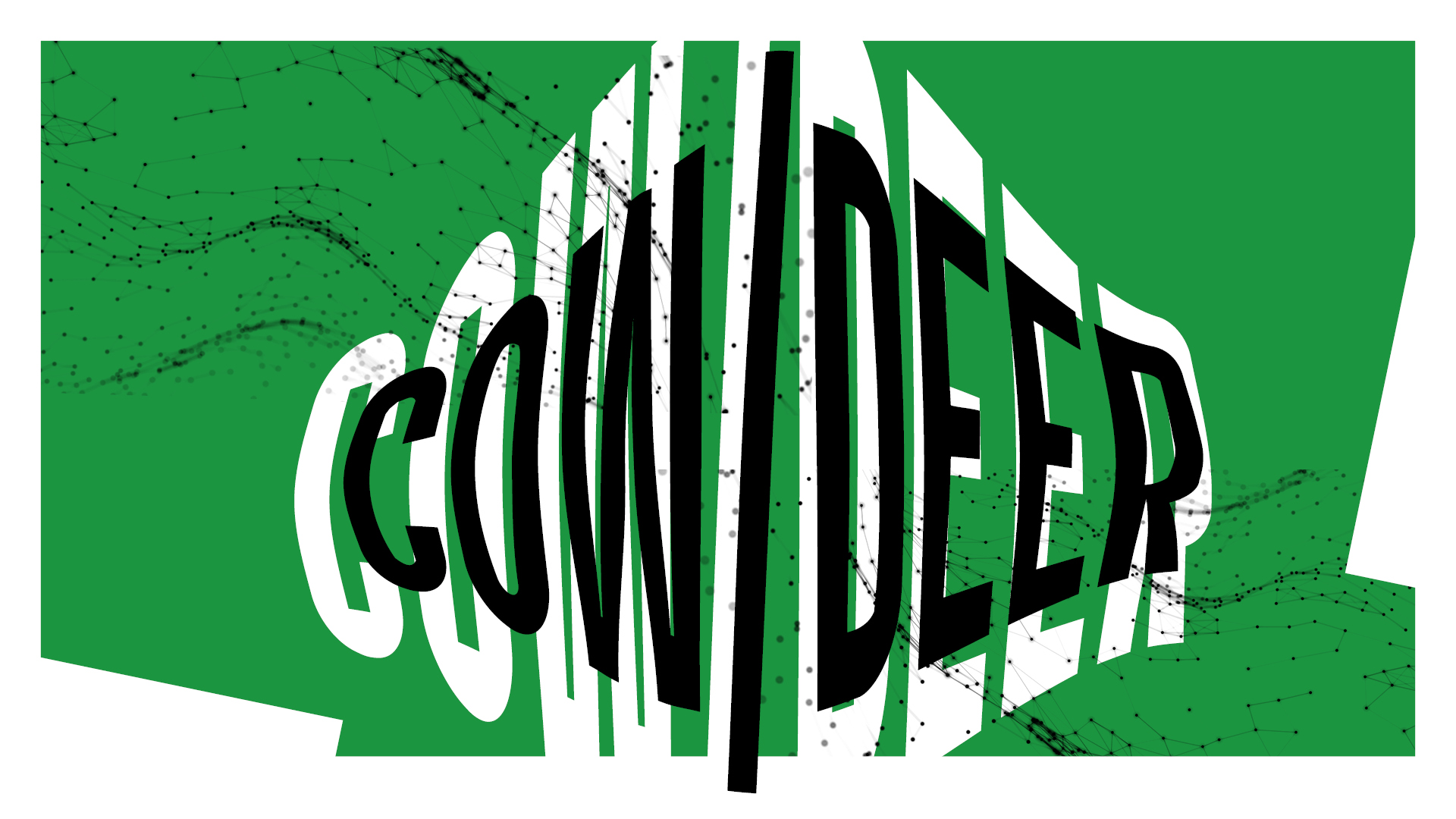
COW DEER
Cow | Deer, the groundbreaking play by Katie Mitchell, Nina Segal and Melanie Wilson in the first collaboration between the National Theatre of Greece and the Royal Court Theatre becomes accessible for blind and low-vision audiences on 9 & 10 January, with the support of Alpha Bank, in the framework of its “Culture for All” programme and in collaboration with liminal. Read More
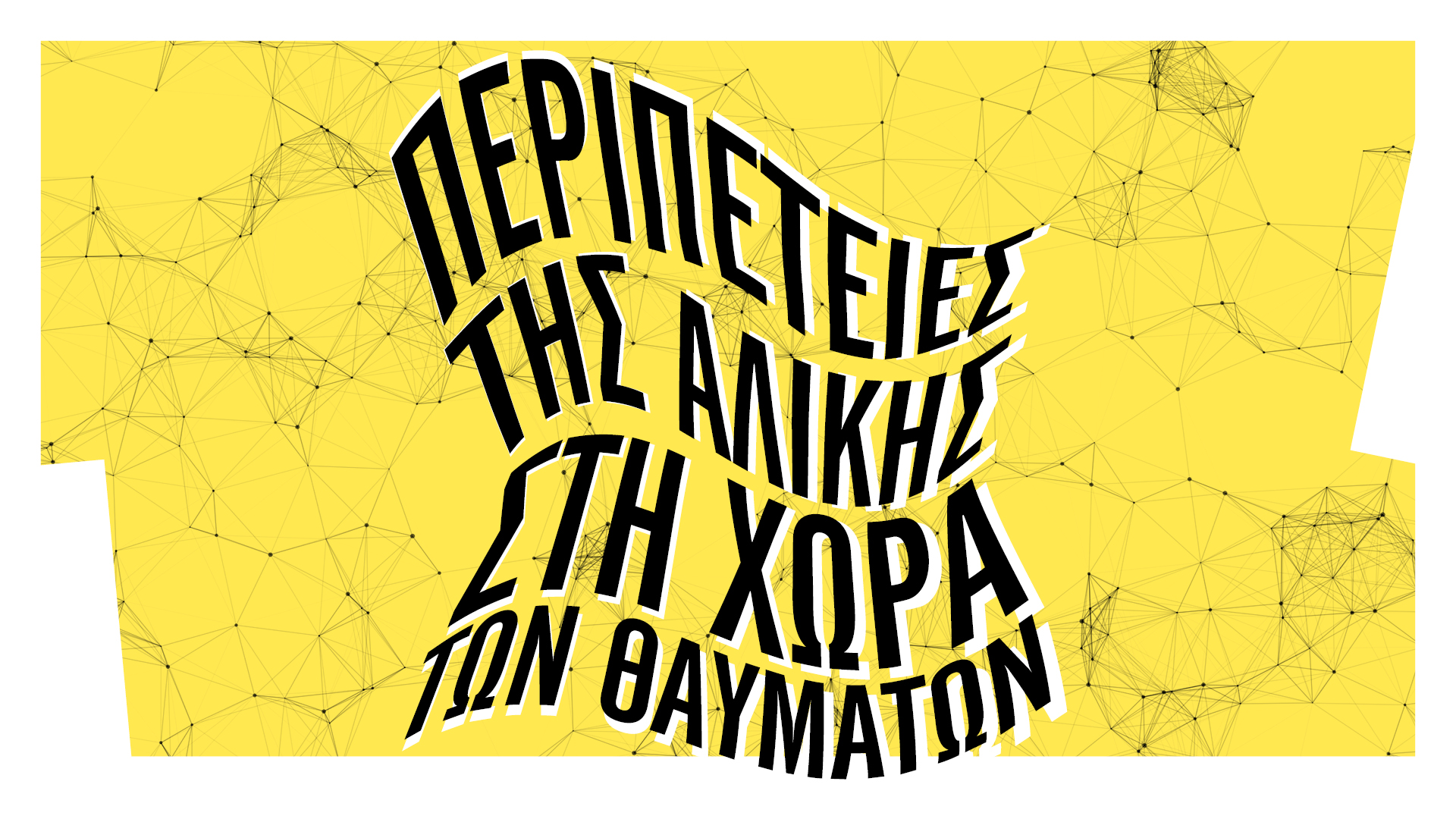
Alice’s adventures in Wonderland in the National Theatre of Greece
Alice’s adventures in Wonderland in the NTG’s Children’s Stage become accessible this November by liminal! Read More
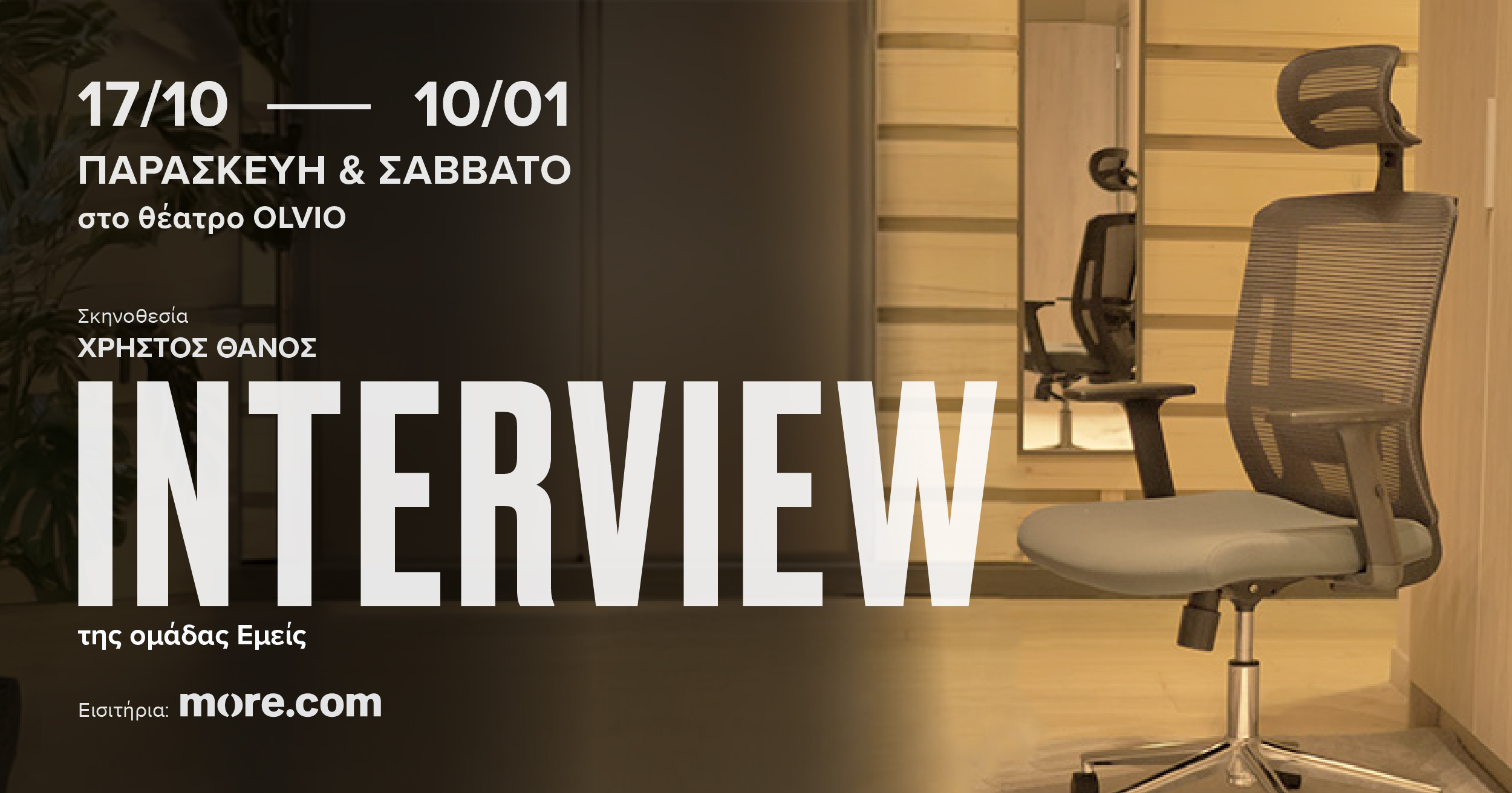
Interview: The Phenomenal Performance is Back
Interview returns to the stage from 17 October 2025 to 10 January 2026, with SDH subtitles (for Deaf and hard-of-hearing audiences) in Greek and English, provided by liminal. Read More

What do you know about musical instruments?
Our collaboration with Megaron The Athens Concert Hall continues! The educational program “Discovering Musical Instruments” returns in October. Read More

